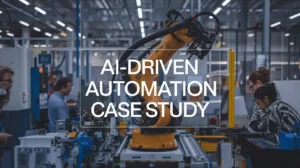Amazon Web Services (AWS) offers a plethora of services designed to cater to various aspects of data engineering, from data collection and storage to processing and analysis. However, as a data engineer, you don’t need to master all of these services. Instead, focusing on a subset of key AWS services can significantly streamline your workflow and boost your productivity. This guide outlines the essential AWS services every data engineer should be familiar with, providing a comprehensive yet focused approach to mastering data engineering on AWS.
Key AWS Services for Data Engineers
1. Simple Storage Service (S3)
Core Functionality
- Object Storage: S3 allows you to store and retrieve any amount of data at any time, making it the central hub for your data storage needs.
- Data Lake: S3 is often used as a data lake to store raw, unprocessed data that will later be used for processing and analysis.
Benefits
- Scalable: Automatically scales to handle growing amounts of data.
- Durable and Secure: Offers 99.999999999% (11 9’s) durability and integrates with AWS security services.
2. AWS Glue
Core Functionality
- ETL (Extract, Transform, Load): AWS Glue simplifies ETL processes by allowing you to write jobs in Python or Spark without managing servers.
- Serverless: AWS handles the infrastructure, enabling you to focus solely on your code.
Benefits
- Ease of Use: Integrated with other AWS services, providing a seamless data workflow.
- Cost-Effective: Pay only for the resources you consume.
3. Amazon Redshift
Core Functionality
- Data Warehousing: Fully managed data warehouse service designed for large-scale data analysis.
- SQL Support: Allows you to use standard SQL and BI tools for data analysis.
Benefits
- Scalable: Automatically scales storage and compute resources.
- Performance: Optimized for fast query performance on large datasets.
4. Amazon EMR (Elastic MapReduce)
Core Functionality
- Big Data Processing: Managed platform for running big data frameworks like Apache Hadoop and Apache Spark.
- Migration: Ideal for migrating existing Hadoop/Spark workloads from on-premises to the cloud.
Benefits
- Flexible: Supports a wide range of big data frameworks and tools.
- Cost-Efficient: Only pay for the resources you use, with pricing models suited for big data processing.
5. AWS Lambda
Core Functionality
Serverless Computing: Run code in response to triggers and events without managing servers.
Event-Driven: Ideal for running small, on-demand scripts and data transformations.
Benefits
Scalable: Automatically scales with the volume of incoming requests.
Cost-Effective: Pay only for the compute time your code consumes.
6. Amazon Athena
Core Functionality
Ad-Hoc Querying: Perform SQL queries directly on data stored in S3.
Serverless: No need to manage infrastructure; just focus on your queries.
Benefits
Fast and Efficient: Uses Presto, an open-source SQL query engine, for fast querying.
Cost-Effective: Pay per query, with no upfront costs.
7. Amazon Kinesis
Core Functionality
Real-Time Data Processing: Collect, process, and analyze real-time data streams.
Similar to Apache Kafka: Provides similar functionality for real-time data pipelines.
Benefits
Scalable: Handles large streams of real-time data with ease.
Integrated: Works seamlessly with other AWS services for end-to-end data processing.
8. AWS Data Migration Service (DMS)
Core Functionality
Data Migration: Simplifies migrating databases to AWS with minimal downtime.
Supports Multiple Databases: Works with a wide variety of database engines.
Benefits
Automated: Reduces the complexity and manual effort involved in database migration.
Reliable: Ensures data integrity and reliability throughout the migration process.
Additional AWS Services for Data Engineers
Amazon RDS
- Managed Database Service: Simplifies setup, operation, and scaling of relational databases.
Amazon DynamoDB
NoSQL Database: Provides fast and flexible NoSQL database services for all applications.
Amazon MSK
- Managed Streaming for Kafka: Fully managed service that makes it easy to build and run applications that use Apache Kafka to process streaming data.
AWS EC2
- Elastic Compute Cloud: Provides resizable compute capacity in the cloud.
AWS IAM
- Identity and Access Management: Manages access to AWS services and resources securely.
AWS VPC
- Virtual Private Cloud: Provides isolated networks for resources in the AWS cloud.
AWS Batch
- Batch Processing: Enables you to run batch computing jobs on AWS.
Amazon SageMaker
- Machine Learning: Provides tools for building, training, and deploying machine learning models.
Conclusion : How to Become an AWS Data Engineer in 2024
Becoming a proficient AWS Data Engineer involves mastering a select group of AWS services that are crucial for data collection, processing, storage, and analysis. By focusing on the services outlined in this guide, you can streamline your learning process and build a solid foundation for your data engineering career. Continuously exploring and gaining hands-on experience with these services will equip you with the skills needed to handle complex data engineering tasks efficiently.

















